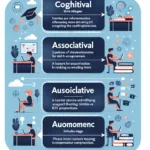Sports physiotherapy is a specialized field that focuses on the prevention, diagnosis, and treatment of injuries related to sports and exercise. As an IELTS candidate, understanding this topic and its associated vocabulary can greatly enhance your performance in the exam. Let’s dive into the key terms and concepts you need to know.
Understanding Sports Physiotherapy
Sports physiotherapy /spɔːts ˌfɪzɪəʊˈθerəpi/ (noun) is a branch of physiotherapy that deals specifically with athletes and sports-related injuries. It combines principles of biomechanics, anatomy, and exercise physiology to help athletes recover from injuries and improve their performance.
Context and Usage
-
Example 1: The football team hired a specialist in sports physiotherapy to help players recover quickly from injuries.
Analysis: This sentence demonstrates the practical application of sports physiotherapy in a professional sports setting. -
Example 2: Sarah’s interest in sports physiotherapy grew after she experienced the benefits firsthand during her rehabilitation from a knee injury.
Analysis: This example shows how personal experience can lead to an interest in the field. -
Example 3: The university offers a comprehensive course in sports physiotherapy, covering topics from injury prevention to advanced rehabilitation techniques.
Analysis: This sentence highlights the educational aspect of sports physiotherapy, indicating its status as an academic discipline.
In the IELTS exam, you’re likely to encounter this term in Reading passages about health, sports, or career choices. It may also be relevant in Writing Task 2 essays on topics related to health, sports, or education.
 Sports physiotherapy clinic
Sports physiotherapy clinic
Key Vocabulary in Sports Physiotherapy
1. Rehabilitation /ˌriːəˌbɪlɪˈteɪʃən/ (noun)
The process of restoring someone to health or normal life through training and therapy after injury or illness.
- Example: “The athlete’s rehabilitation program included strength training and flexibility exercises.”
Analysis: This sentence demonstrates the practical application of rehabilitation in sports physiotherapy.
2. Biomechanics /ˌbaɪəʊmɪˈkænɪks/ (noun)
The study of the mechanical laws relating to the movement or structure of living organisms.
- Example: “Understanding biomechanics is crucial for sports physiotherapists to analyze and improve an athlete’s technique.”
Analysis: This example shows the importance of biomechanics in sports physiotherapy.
3. Proprioception /ˌprəʊprɪəˈsepʃən/ (noun)
The body’s ability to sense its location, movements, and actions.
- Example: “The physiotherapist designed exercises to improve the gymnast’s proprioception after her ankle injury.”
Analysis: This sentence illustrates a specific application of proprioception training in sports physiotherapy.
4. Kinesiology /kɪˌniːsɪˈɒlədʒi/ (noun)
The study of human movement and the body’s physiological and mechanical functions.
- Example: “The sports physiotherapist applied principles of kinesiology to develop a personalized training plan for the swimmer.”
Analysis: This example demonstrates how kinesiology is integrated into sports physiotherapy practice.
5. Soft tissue mobilization /sɒft ˈtɪʃuː ˌməʊbɪlaɪˈzeɪʃən/ (noun phrase)
A manual therapy technique used to treat muscles, tendons, ligaments, or fascia.
- Example: “The physiotherapist used soft tissue mobilization techniques to alleviate the runner’s calf muscle tightness.”
Analysis: This sentence shows a specific treatment method used in sports physiotherapy.
Frequency in IELTS
These terms are most likely to appear in the Reading and Listening sections of the IELTS test, particularly in passages or conversations about sports, health, or medical treatments. They may also be useful in Writing Task 2 if the essay topic relates to sports, health, or career choices.
Vocabulary Analysis
Word Structure
Let’s break down “rehabilitation”:
- Re- (prefix): again
- Habilitation (root): make fit or capable
- -tion (suffix): indicates a state or condition
Understanding these components can help you recognize and remember related words like “habilitate” or “rehabilitate.”
Synonyms and Antonyms
-
Rehabilitation:
- Synonyms: recovery, restoration, therapy
- Antonyms: deterioration, degeneration
-
Biomechanics:
- Related terms: ergonomics, kinesiology
- (No direct antonyms)
Memory Techniques
Mind Mapping
Create a mind map with “Sports Physiotherapy” at the center, branching out to key concepts like rehabilitation, biomechanics, and treatment techniques. This visual representation can help you remember the relationships between different aspects of the field.
Storytelling
Imagine a story of an athlete’s journey through injury and recovery, incorporating key terms. For example: “After his injury, Tom worked with a sports physiotherapist who used her knowledge of biomechanics and kinesiology to design a rehabilitation program, including proprioception exercises and soft tissue mobilization.”
Practice Exercises
-
Gap-fill exercise:
The __ (rehabilitation) process for the injured tennis player included __ (proprioception) training to improve balance and coordination. -
Sentence formation:
Use “biomechanics” and “kinesiology” in a sentence related to sports physiotherapy. -
IELTS-style question:
Some people believe that sports physiotherapy should be a mandatory part of all professional sports teams’ medical staff. To what extent do you agree or disagree?
Remember to practice using these terms in context regularly to reinforce your learning and improve your ability to use them naturally in the IELTS exam.
Conclusion
Mastering the vocabulary related to sports physiotherapy can significantly enhance your performance in the IELTS exam, particularly in Reading and Listening sections. By understanding these terms and their applications, you’ll be better equipped to handle questions on sports, health, and medical topics. Remember to practice using these words in context and create your own examples to solidify your understanding.
We encourage you to share your experiences with learning this vocabulary in the comments section below. Have you encountered any of these terms in your IELTS preparation? Do you have any questions about how to use these words effectively in the exam? Let us know, and let’s continue learning together!


